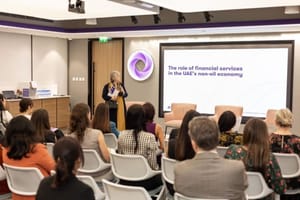A new report released by the World Trade Organization (WTO) examines the transformative potential of artificial intelligence (AI) on world trade.
Titled “Trading with Intelligence: How AI Shapes and is Shaped by International Trade,” the report was unveiled at a WTO event attended by government officials, academics, and private sector leaders.
The study outlines how AI could reduce trade costs, reshape the services trade, boost AI-related goods and services, and redefine global comparative advantages. It emphasizes the critical role of the WTO in promoting trustworthy AI, ensuring global regulatory convergence, and mitigating risks associated with fragmented AI regulations.
AI’s ability to streamline logistics, supply chain management, and regulatory compliance could dramatically lower trade costs, leveling the playing field for developing economies and small businesses. By automating processes like customs clearance and risk prediction, AI could help smaller firms enter global markets and increase participation in international trade.
The report highlights both optimistic and cautious scenarios for AI adoption. In an optimistic view, AI adoption could increase global trade growth by nearly 14% by 2040. Conversely, a slower AI uptake would result in a more modest 7% growth. Developing economies are particularly poised to benefit from reduced trade costs, while high-income nations may see the largest productivity gains.
However, the report cautions that disparities in AI access, data governance, and intellectual property rights may deepen the divide between large and small firms. WTO Director-General Ngozi Okonjo-Iweala emphasized the importance of the WTO’s role in ensuring AI’s benefits are shared equitably and addressing the associated risks on a global scale.
News Source: Emirates News Agency









